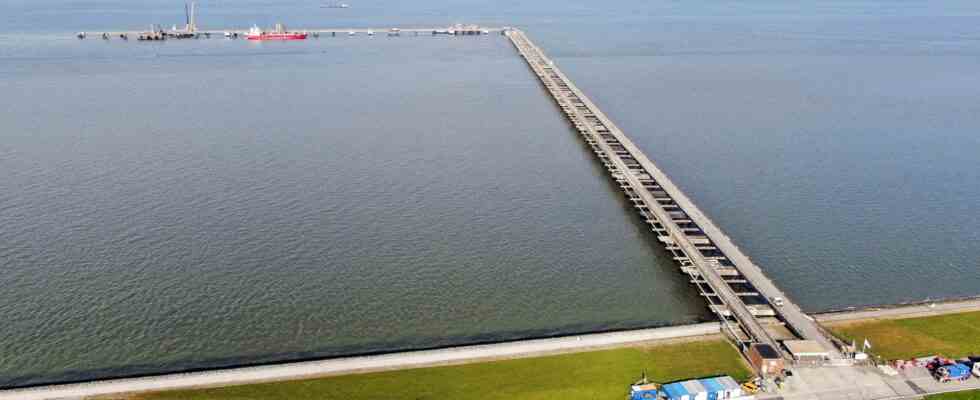Status: 05/20/2022 01:26 am
The traffic light coalition’s plans to accelerate the construction of liquid gas terminals have cleared the next hurdle. The Bundestag passed a law with which certain procedural steps in the approval of LNG terminals can be bypassed.
In view of Germany’s dependence on Russian pipeline gas, the Bundestag passed regulations to speed up the construction of liquid gas terminals. In the evening, parliament voted with the votes of the coalition and also the Union for the project, which is intended to make imports of liquefied gas from the USA or the Arabian Peninsula significantly easier.
Interventions in the otherwise usual approval processes are planned for this purpose. The construction of the terminals and the connection to the gas pipeline network should be associated with significantly lower requirements, which are based on EU minimum standards. An environmental impact assessment is no longer necessary for the so-called floating terminals, for example.
Possible stop of deliveries from Russia as a reason
After the expected approval in the Federal Council on Friday, the law can come into force. The reason for the procedure is the exceptional situation in Germany in view of a possible stop in pipeline gas deliveries from Russia.
“Such a gas shortage must be avoided with all efforts,” says the justification in the law. “As a result, the public services and energy supply for the citizens of the Federal Republic of Germany could then no longer be guaranteed.”
First ramming in Wilhelmshaven already set
In Wilhelmshaven, the symbolic first ramming blow for the construction of a terminal has already been set. With the help of the law, the first liquid gas should already be unloaded there in winter. A similar floating terminal is planned for Brunsbüttel. It is used with the help of a special ship that converts the liquid fuel back to the gas state so that it can be fed into pipelines.
A permanent terminal is also planned in Brunsbüttel, but its construction will take several years. So far, Germany has not had any liquid gas terminals at all and those in neighboring countries are already working to capacity.
Germany currently imports around 35 percent of its gas requirements from Russia. Despite the planned liquefied gas imports, the government expects to remain dependent on Russian gas until 2024.

